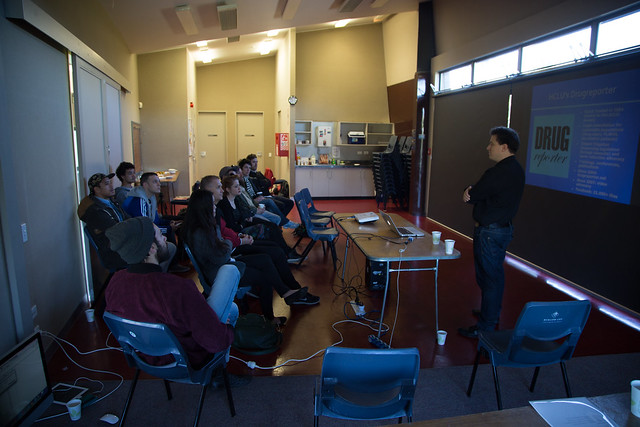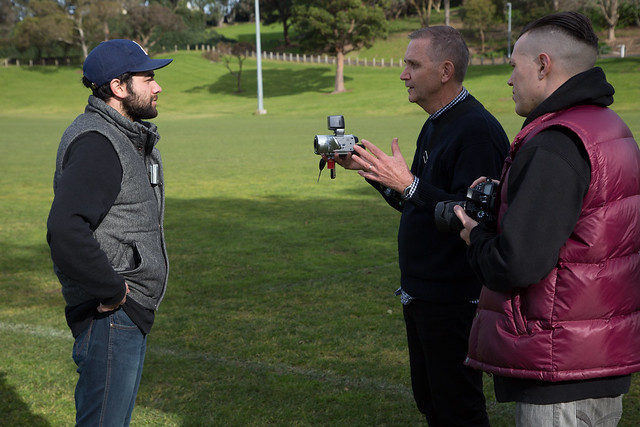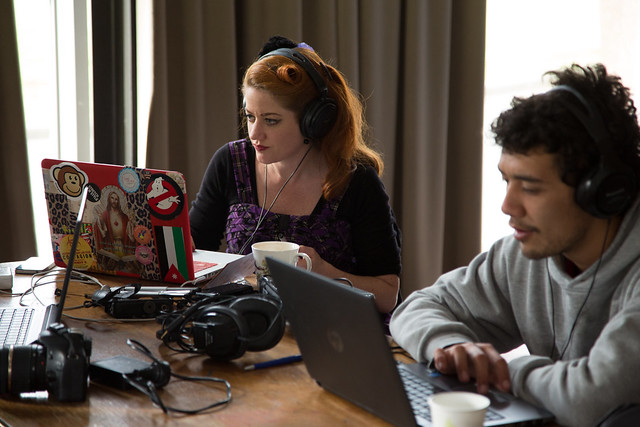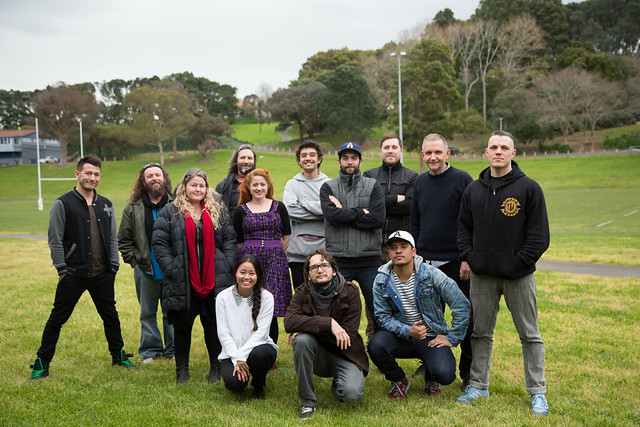The 14 participants invited by the New Zealand Drug Foundation were activists from various social fields. They had different levels of knowledge of video production and drug policy, so we aimed at providing a basic course that would be useful for everyone.
On the morning of the first day, Peter Sárosi presented an example of Drugreporter's video advocacy. 
In the afternoon, István Gábor Takács explained how to prepare for video production, and how to make an advocacy plan. The participants then learned about the necessary equipment, camera settings, how to work with sound, framing, how to compose shots and finally, interview techniques. 
In the morning of the second day, participants interviewed each other and shot B-Rolls.
In the afternoon they learned about editing on Premiere Pro CC and edited their own footage.
To see the entire foto album, click here or on the picture:
After two days of an intensive course in video advocacy, we travelled on to Wellington, where Peter gave a presentation of our drug policy work and video activism, for people working in the drugs and social work field in New Zealand. 
Drugreporter